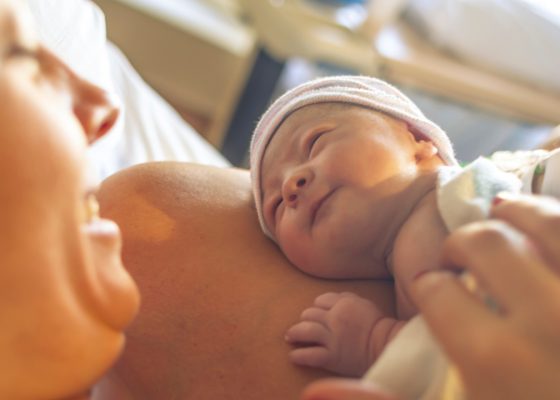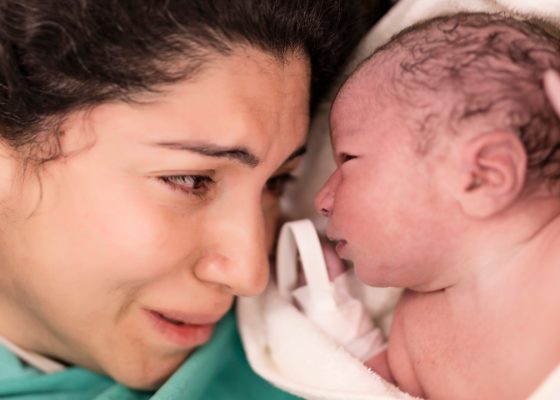The NSW Parliamentary Inquiry into Birth Trauma has been described as childbirth’s ‘me too’ moment.
Professor Hannah Dahlen AM, from the School of Nursing and Midwifery at Western Sydney University, has called the NSW Parliamentary Inquiry into Birth Trauma childbirth’s “me too” moment.
“No means no, except apparently in childbirth,” Professor Dahlen told the committee members.
“It’s time to change that. This is the ‘me too’ movement of birth, that is now finally coming to fruition.
“The intervention rates in NSW have risen dramatically. Back in the late 80s, early 90s, we were horrified at a 15% caesarean section rate. We now have a 38% caesarean section rate.
“We only have 50% of women having a normal vaginal birth; we have now got a one in four episiotomy rate. Perinatal mortality and maternal mortality has shifted slightly, but not hugely in that time.
“And we have about 13% of models of care that are midwifery group practice, in this state and nation,” said Professor Dahlen.
“We’ve become really good at saving lives. But we have not become so good at protecting minds and hearts. And there is more to life than death.
“We need mothers and babies to be alive and well physically, but also psychologically, socially, culturally and spiritually.”
Professor Dahlen and her research team are the authors of the Birth Experience Study (BESt), Birth in the time of covid (BITTOC) and the VBAC study.
They have found that 28% of NSW women reported that their most recent birth was “traumatic”.
“Obstetric violence is recognised by the UN as a form of gendered violence and internationally rates can range from 17% to 58%,” Professor Dahlen’s submission to the inquiry read.
“In BESt we found that one in 10 women in Australia reported experiencing obstetric violence … [which] left women feeling dehumanised, powerless and violated. Examples included the use of coercive language and a lack of informed consent.
“Shockingly, some women described internal vaginal examinations in language used to describe sexual assaults.”
Earlier in the inquiry RANZCOG board director Dr Jared Watts objected to the use of the phrase “obstetric violence” as implying intention on the part of the maternity care provider.
Dr Watts cited RANZCOG’s submission to the inquiry which said it was “apparent that the word ‘violence’ has a grounding in the social and political philosophy literature, with a paradigm of victimhood and oppression by a powerful privileged group who deliberately cause suffering”.
“RANZCOG strongly believes the term ‘obstetric violence’ is incorrect and in fact may limit opportunities to reduce patient experience of birth trauma,” said the submission.
“Whilst RANZCOG acknowledges that interventions can cause harm, or psychological stress to the patient, the term ‘obstetric violence’ implicates that the obstetrician ‘intended’ the harm – which is unfair and vastly incorrect.”
The College also objected to the term “obstetric trauma” on the grounds that it implicated only obstetricians were causing harm, “whereas the trauma/harm felt by women may be a result of the care provided by all maternity providers, including anaesthetic and midwifery professionals”.
Advocacy group Maternity Choices Australia has called for sweeping changes to the funding of maternity care in New South Wales away from activity-based funding to “woman-centred” funding.
Ms Sally Cusack, MCA’s national secretary, and Ms Azure Rigney, MCA’s national advocacy manager, told the committee that NSW’s activity-based funding model worked to incentivise treatment and procedures, leading to interventions that were often unnecessary, sometimes traumatising to the mother, and at times undertaken without informed consent.
Instead, they recommended a woman-centred funding model in which a portion of funding be allocated to each woman during each of the four trimesters (where the fourth trimester is the three months post-birth).
“This will incentivise services to offer facilities and care that women want. Service agreements must incentivise reaching maternity group practice targets and fine Local Health Districts who do not meet their targets set by the NSW Health Minister,” the MCA submission to the inquiry reads.
“We have seen a particular explosion in interventions in just the last 20 years which could be forgiven if we’d seen a corresponding reduction in stillbirths,” said Ms Cusack.
“Sadly, we’ve seen no reduction in stillbirths in the same period. Instead, we’re seeing rising rates of physical and emotional trauma, where we’re now in the position that one in three women report having experienced birth trauma, one in four are developing postnatal depression and one in 10 with PTSD, and nearly one in five babies admitted to special care nurseries or NICU.
“American women today are 50% more likely to die in childbirth than their mothers,” she said.
“While our outcomes aren’t tracking as badly, our intervention rates are headed in the same direction.”
Do you have a story tip for us, or a topic you would like to see us cover? Contact the editor at editor@healthservicesdaily.com.au.




